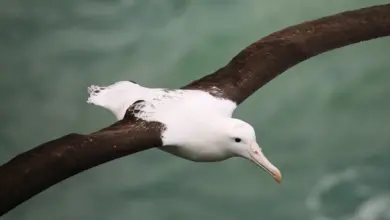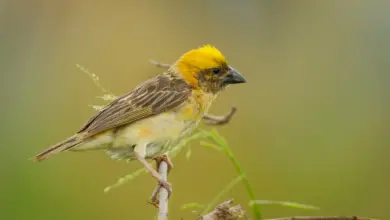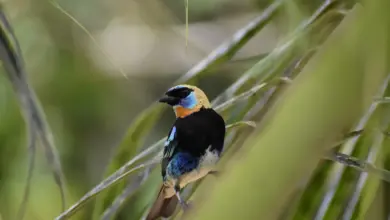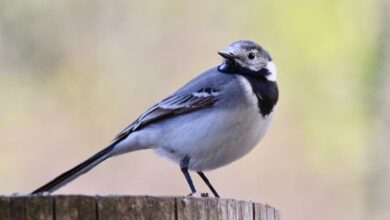How to Get Rid of Muscovy Ducks? Are They Invasive?
Muscovy ducks have become an invasive species in many parts of the country, mostly due to thoughtless human action. Here’s how to get rid of muscovy ducks if they are in or near your property.
While Muscovy ducks make great pets and poultry birds, feral duck populations can be a huge nuisance.
After all, nobody likes having a flock of wild ducks invading their yard or lawn.
Wild Muscovies can be quite invasive and are generally categorized as pests.
If you’re not sure how to get rid of the annoying wild ducks on your property, this article is for you.
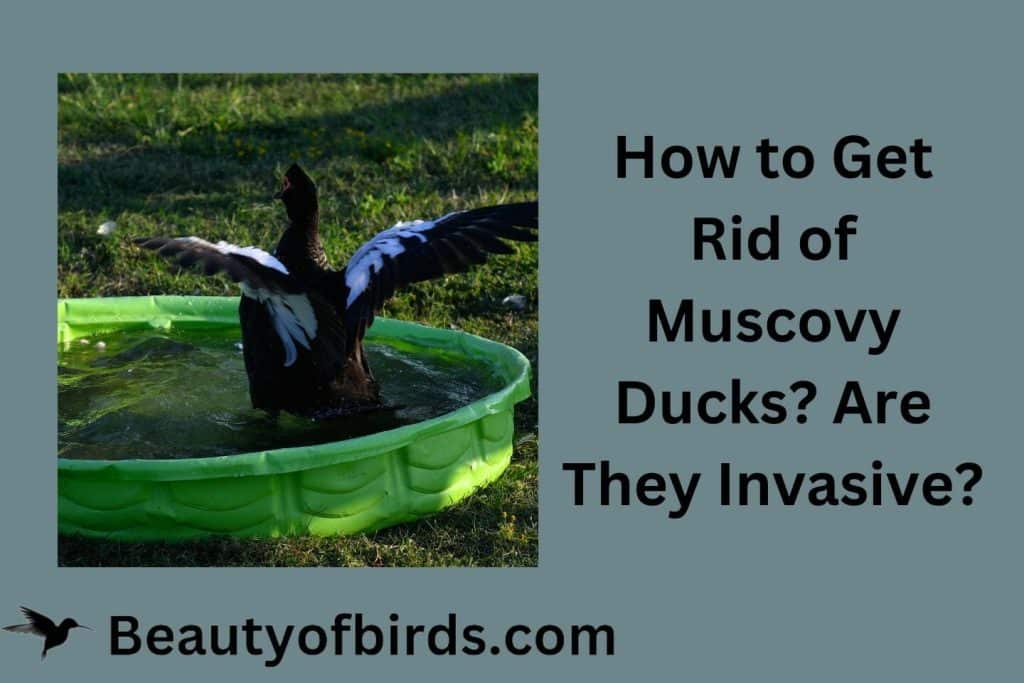
Are Muscovy Ducks a Nuisance?
Wild Muscovy ducks are nuisance birds in several ways.
To begin, they’re invasive and often start breeding under roof overhangs and in condominium balconies in urban areas.
You may also find them nesting in tree cavities, farms, and near water bodies.
While Muscovies aren’t the most aggressive ducks out there, aggressive begging for food isn’t uncommon among the feral ones.
Remember, ducks growing up in the wild are very different from domesticated ducks in their behavior.
Being social ducks, Muscovies also tend to flock around in large groups.
As you might guess, the duck droppings cause a huge mess too.
An adult Muscovy duck produces around 1/3rd of a pound of droppings a day.
Moreover, ducks love spending time in and around water bodies, and you certainly don’t want them defecating in your pool.
Apart from the obvious problem of cleaning your property, it also poses a potential health hazard.
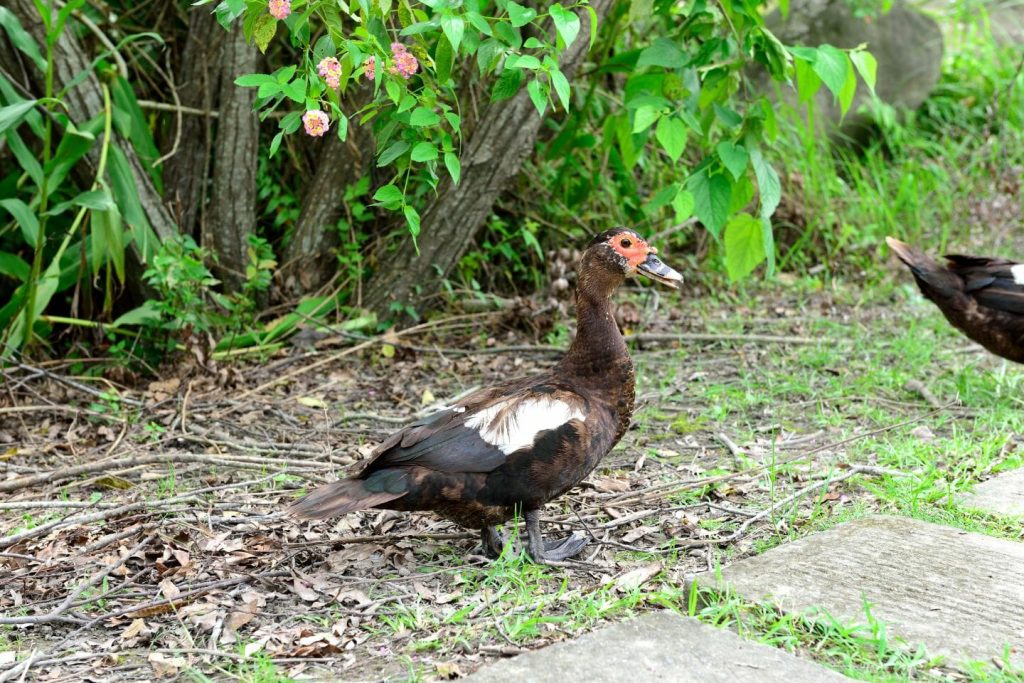
Do Muscovy Ducks Pose a Threat to Other Animals?
Known for their calm and friendly temperament, Muscovy ducks usually don’t pose a threat to other animals.
In poultries, they can even be raised together with other species.
However, they’re extremely protective of their baby chicks and may attack anyone they perceive as a threat.
They can also bite sometimes if they feel threatened.
Like most feral animals, the danger of transmissible diseases is something to worry about.
Wild Muscovy ducks often end up spreading diseases to native birds and poultry.
How To Deter Muscovy Ducks?
Deterring Muscovy ducks from invading your property is not as easy as it seems.
Unlike other nuisance birds, harassing them with light, noise, or dogs may not work.
These hardy ducks will promptly return back.
Putting up a fence around your property won’t help either because Muscovies can fly (albeit only a short distance).
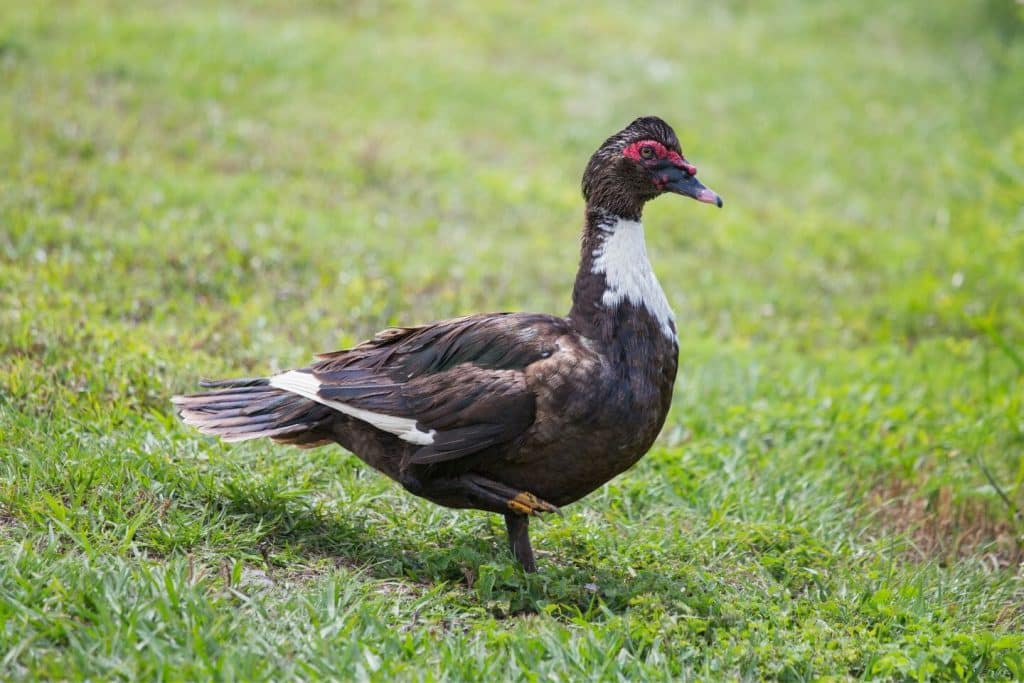
Similarly, predator urine won’t help you deter Muscovy ducks either.
These birds simply don’t have a strong sense of smell.
If you destroy or remove the eggs of nesting female ducks, they’ll only relocate to somewhere else on or around your property to nest again.
So, what can you do?
The best way to keep them away is to deny them a source of food or water.
If you have a pool or a pond, you might want to cover it with a net or a pool cover so the ducks can’t access them.
You should also refrain from feeding wild ducks anywhere near your property.
While feeding them might be fun, the last thing you need is a bunch of wild Muscovies chasing you and begging for food every time you step out.
How To Chase Muscovy Ducks From My Property?
If you have Muscovies loitering on your property, consider installing motion detectors with the sounds of distressed birds.
Every time the Muscovies activate it with their movement, the sounds will scare them off.
I wouldn’t recommend trying to chase out Muscovies by yourself.
As I mentioned earlier, they can grow aggressive if they feel threatened.
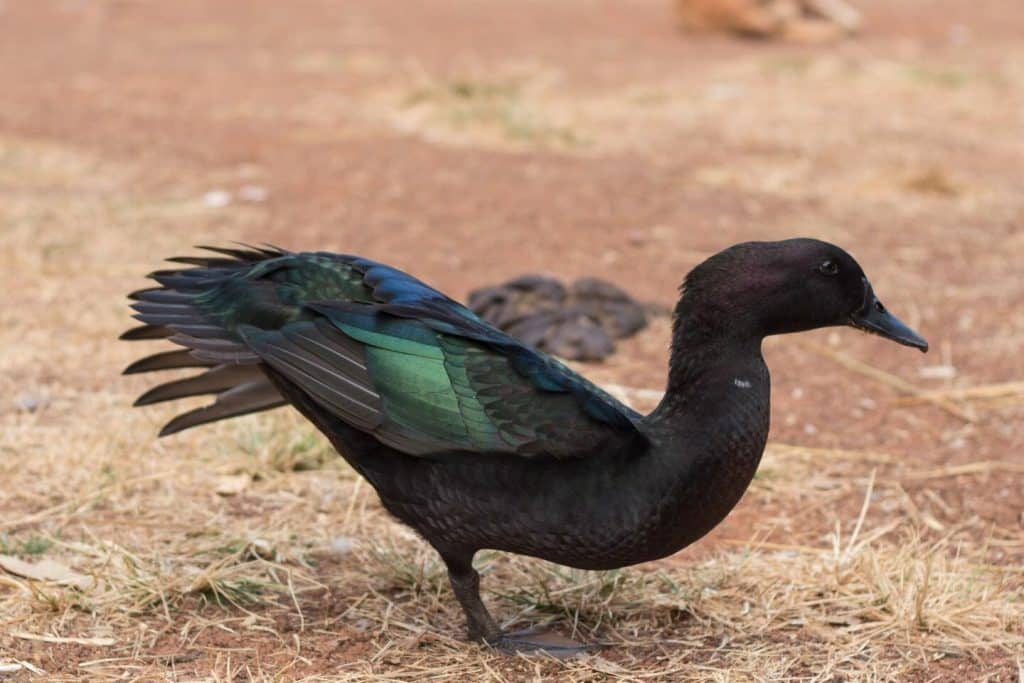
How To Keep Muscovy Ducks Out of Your Patio/Garden/Yard?
Once again, installing motion detectors in your patio, garden, or yard might help.
You may also hang windsocks and streamers all over the garden – their movement will help scare away the Muscovies.
Another clever way to keep ducks out of your garden is to install a life-size swan statue, as swans are natural enemies of ducks.
Although you may not like it, you should temporarily remove all your bird feeders until the Muscovies are gone for good.
Since they’re able to fly, it’s hard to keep the feeders out of their reach.
Besides, seeds falling to the ground may attract ducks too.
Muscovy Duck Removal
Removing Muscovy ducks by yourself can be rather difficult, given their persistence and the tendency to turn aggressive when threatened.
It’s best to hire professionals to get rid of them safely and permanently.
Besides, in Texas, where the birds occur naturally, their removal is banned by federal law.
Who Removes Muscovy Ducks?
You may contact private trappers or wildlife management agencies in your area to help with the removal of Muscovy ducks.
However, keep in mind that they will likely euthanize the birds as relocation isn’t allowed.
If you don’t want the Muscovies to be killed, this may not be the best course of action.

Will Racoons Take Muscovy Ducks?
Raccoons are a major natural predator of ducks and chickens.
Of course, this is a silver lining when dealing with wild Muscovy ducks invading your property.
The presence of raccoons around your property will force them to leave for somewhere safer.
How To Catch Muscovy Ducks?
I wouldn’t recommend trying to catch Muscovy ducks if you don’t have experience in it already.
Regular traps don’t work for these large, flighted ducks – they require specialized traps.
Still, if you don’t wish to hire professional trappers, you may use a funnel trap made from welded wire with corn bait to catch entire groups of Muscovies at once.
How To Relocate Muscovy Ducks?
If you want to send the captured ducks somewhere else, you may look for local animal sanctuaries that accept Muscovies.
As I said, in some places like Texas, their removal is banned. So if you are living in the Lone Star state, make sure not to try removing them.
Can You Manage Muscovy Duck Population by Destroying Their Eggs?
Destroying or removing the eggs isn’t the best idea.
It will only prompt the female ducks to renest elsewhere and lay a new clutch of eggs.
Besides, if incubation has already begun, the unborn fetus might pose a disturbing sight.

Instead, you can manage the population of domestic and feral resident Muscovies by rendering their eggs non-viable.
You can alter the eggs (explained in the next section) to prevent them from hatching.
Remember to leave at least two viable eggs so that the female duck would spend three weeks incubating them and 12 more weeks raising the baby ducks.
Else, she will likely abandon the nest and start a new one right away.
How to alter Muscovy duck eggs?
The alteration process involves changing the internal structure of the eggs so that they’re no longer viable for hatching.
You simply need to shake all but two of the eggs vigorously, scrambling the contents inside the shell.
Make sure to do this during the laying period while the eggs are still dormant.
Altering them after incubation has begun may result in the birth of a heavily deformed duckling instead of rendering them nonviable.
If you’re unsure, send a sample to a wildlife rehabilitator for candling. You can also candle the eggs yourself.
Return the altered eggs to the nest, as removing them might cause the duck to leave the nest and lay new eggs elsewhere.
However, make sure to mark them with a crayon or coat them in vegetable oil so that you know which eggs are still viable and which aren’t.
Place the viable eggs on top of, or away from, any eggs you have coated in oil.
A week after the female duck has left the nest with the two ducklings that hatched from the viable eggs, you may pierce and discard the altered ones.
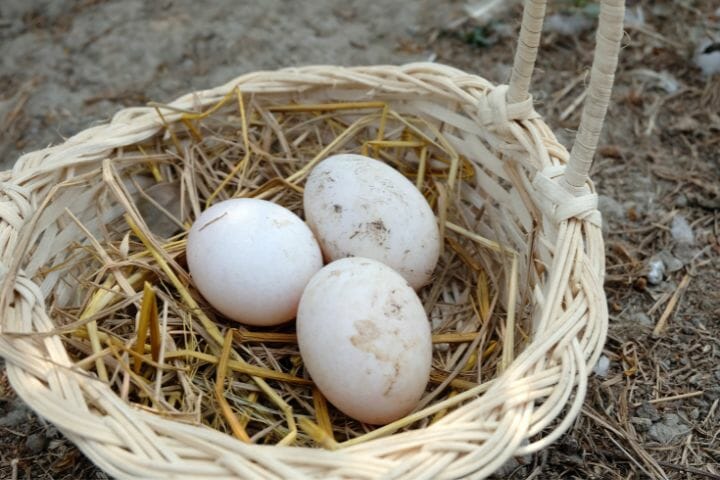
Muscovy Ducks In Florida
Although Muscovy ducks aren’t native to Florida, both wild and domestic populations are found in the state.
Florida’s state laws classify Muscovy ducks as class III wildlife.
This means while the sale and exhibition of these ducks require a permit, you’re free to keep them as pets.
Florida is unique in this sense because it is the only state that allows keeping these birds as pets.
How Did Muscovy Ducks Get to Florida?
Muscovy ducks got to Florida as a result of illegal relocation by private individuals.
People released these ducks in urban and suburban parts of the state as pets or for ornamental purposes, despite the law prohibiting such actions.
Are Muscovy Ducks Invasive in Florida?
Yes, Muscovy ducks are an invasive duck species, even in Florida.
As explained earlier, they’re not native to the state and were introduced through human actions.
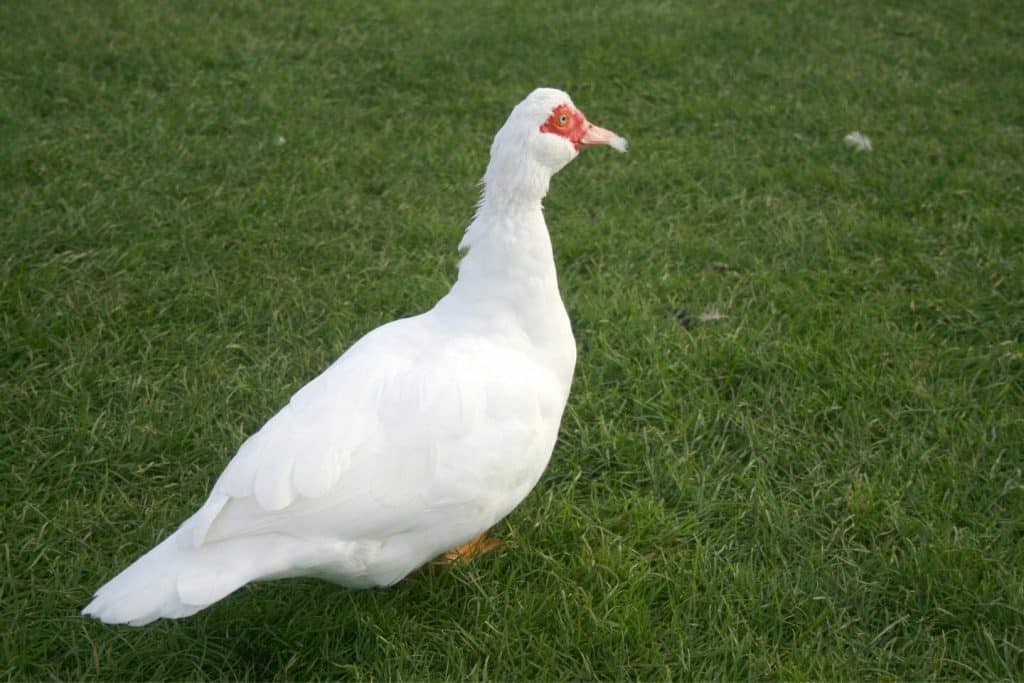
Why Muscovy Ducks Are Bad for Florida?
It didn’t take long for the wild Muscovies released in Florida to multiply in their numbers.
They now pose several problems, like many other invasive species.
Apart from causing nuisance and property damage, they also create direct competition for native species.
The transmission of diseases remains a concern too.
Can You Eat Muscovy Ducks in Florida?
Yes, the laws protecting Muscovy ducks in Florida do not ban their consumption.
You can eat their tasty meat or eggs without worries.
However, like all other animals, Florida’s anti-cruelty statute protects them against inhumane killing.
How To Get Rid of Muscovy Ducks in Florida?
The easiest way to get rid of Muscovy ducks in Florida is to hire trappers for the job.
You may trap them yourself if you have the means, but as in the other states, releasing them elsewhere is prohibited.
In Florida, you’re allowed to kill Muscovy ducks using a firearm under the following conditions:
- It should be during daylight hours
- You must have the landowner’s permission
- The bullets should be non-toxic
Frequently Asked Questions
Why Should Muscovy Ducks Be Removed?
If you have a pool or open water somewhere near your home, try covering it up with a tarp or some other form of cover.
These birds are excellent at foraging for insects and bugs, so it might also help to keep the surroundings clean.
You can also install motion sensors that raise a distressed bird alarm on your property. Putting up large swan cutouts might also work for some people.
How To Trap Muscovy Ducks?
It’s best to get a professional bird trapper to do the job.
You can try using a funnel trap, as I mentioned earlier. Corn feed can be used as bait to lure them into the trap,
These traps have a big opening at one end that shuts off as soon as the bird enters, trapping the duck till it is released.
Where To Buy Muscovy Ducks in Florida?
It is the only state where keeping them as pets is considered legal.
Removal of Muscovy Ducks Do They Return?
This is why altering their eggs is one method that we have suggested in the article to deal with them.
By altering the eggs, you destroy any chances of new muscovies ending up on your property.
Wrap Up
As friendly and interesting as they might be, Muscovy ducks may leave you with no choice but to remove them if they invade your property in large numbers.
Depending on what’s convenient for you without breaking the law, you may either do it yourself or rope in professionals.
Either way, I hope you won’t have much trouble getting rid of the nuisance birds.
These birds aren’t always bad, though – they can be gentle and loving, and in places like Florida, they are even kept as pets.
Whatever you do, choose a humane way to deal with them. Thank you for reading.

